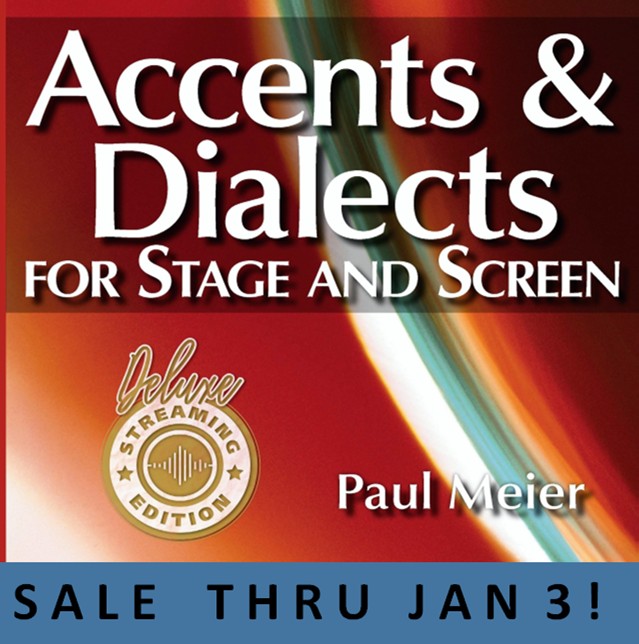Netherlands 2
Listen to Netherlands 2, a 30-year-old woman from Friesland and Rotterdam, Netherlands. Click or tap the triangle-shaped play button to hear the subject.
Both as a courtesy and to comply with copyright law, please remember to credit IDEA for direct or indirect use of samples. IDEA is a free resource; please consider supporting us.
BIOGRAPHICAL INFORMATION
AGE: 30
DATE OF BIRTH (DD/MM/YYYY): 1975
PLACE OF BIRTH: Province of Friesland
GENDER: female
ETHNICITY: Dutch
OCCUPATION: dancing teaching at primary school
EDUCATION: Dance Academy in Rotterdam, PABO (education for schoolteachers)
AREA(S) OF RESIDENCE OUTSIDE REPRESENTATIVE REGION FOR LONGER THAN SIX MONTHS:
The subject was born and raised in a very small village (60 people) in Friesland. She lived there until she was 16 years old (moved to Leeuwarden, also in Friesland) and then left to study at the Dance Academy in Rotterdam. At the time of this recording, she had lived in Rotterdam for nine years.
OTHER INFLUENCES ON SPEECH:
She was brought up with the Dutch languages until her fourth birthday. Then her family decided to switch over to Fries, a completely different language. In Friesland people, speak a different language that is very different from Dutch and sometimes resembles English. She doesn’t speak English often and isn’t really interested in languages. Friesland has its own language, completely different from Dutch. People from that province usually have a strong Fries accent when they speak Dutch and are recognized mostly by their nasal and “twangy” sound. Subject tries to avoid sounding Fries and therefore speaks softly.
The text used in our recordings of scripted speech can be found by clicking here.
RECORDED BY: Judith Olthuis
DATE OF RECORDING (DD/MM/YYYY): 22/10/2005
PHONETIC TRANSCRIPTION OF SCRIPTED SPEECH: N/A
TRANSCRIBED BY: N/A
DATE OF TRANSCRIPTION (DD/MM/YYYY): N/A
ORTHOGRAPHIC TRANSCRIPTION OF UNSCRIPTED SPEECH:
I was born and raised in Friesland. I was raised in, uh, uh, a very small village with, uh, like 60 people in Friesland. In Friesland, we, uh, speak another language; it’s very different from Dutch, and, uh, it looks sometimes a little bit like English. I lived there ’till my 16th birthday and then I moved to Rotterdam, and there I studied at the Dance Academy. At the moment I’m teaching at a primary school, and I teach dance to little children. I’m also studying to become a teacher; I don’t speak very often English, and I’m not really interested in languages.
TRANSCRIBED BY: Faith Harvey
DATE OF TRANSCRIPTION (DD/MM/YYYY): 20/03/2008
PHONETIC TRANSCRIPTION OF UNSCRIPTED SPEECH: N/A
TRANSCRIBED BY: N/A
DATE OF TRANSCRIPTION (DD/MM/YYYY): N/A
SCHOLARLY COMMENTARY:
The language in Friesland has modified her English pronunciation, especially the “s” (both as first and last consonant of a word) and the “t” (at endings of words), which are typically Fries. Note, for instance, how she says “vet.” Typical Dutch pronunciations include the “u” in “hurry.” In British or American English, that’s an undefined vowel (schwa), but in Holland it often sounds like the “i” in “girl.” This also happens in the second syllable of a word like “fire” or “higher.” This subject does it in the word “tire.” Also, Dutch people are not likely to have the puff of air that goes with the English “p” (“power”), “k” (“OK”) and “c” (“copper”). Usually they don’t add voice to a “b” (“sober”) or a “v” (as in “love,” which that almost becomes an thick “f”) or a “g” (“obliged” would end as “tsjt”). The “l” is always the same, so there is no difference in light or dark. The “se” as an ending of a word, as in “wise,” sounds like an “s” and not like an almost “z.” Because she hardly ever speaks English, she doesn’t pronounce “the” as “thee” before a word that starts with a vowel. For the same reason, her “s” often goes with a “j,” as in the bio-text: “primary school” (sjk). Furthermore, she sometimes has a specific American pronunciation, such as “ate” in “ate a bowl of porridge,” or “bath.”
COMMENTARY BY: Judith Olthuis
DATE OF COMMENTARY (DD/MM/YYYY): 22/10/2005
The archive provides:
- Recordings of accent/dialect speakers from the region you select.
- Text of the speakers’ biographical details.
- Scholarly commentary and analysis in some cases.
- In most cases, an orthographic transcription of the speakers’ unscripted speech. In a small number of cases, you will also find a narrow phonetic transcription of the sample (see Phonetic Transcriptions for a complete list). The recordings average four minutes in length and feature both the reading of one of two standard passages, and some unscripted speech. The two passages are Comma Gets a Cure (currently our standard passage) and The Rainbow Passage (used in our earliest recordings).
For instructional materials or coaching in the accents and dialects represented here, please go to Other Dialect Services.
 IDEA: International Dialects of English Archive
IDEA: International Dialects of English Archive




